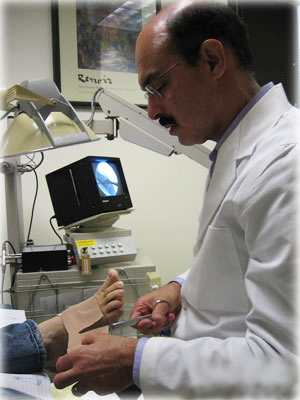Anyone who has worked in the health profession for any length of time has heard this. When I was younger the answer to the question “Can you help me?” would have been emphatic “yes!” Now that I have been in practice for 30 years the answer is an emphatic “maybe.”
I have found that the answer to this question depends more on who is asking than any other factor. One type of person asking the question is someone who has been all over and has yet to receive a satisfactory answer. They may have seen the wrong type of practitioner or maybe their diagnosis was just missed.
I recently read a story about a man who took his son all over the country and spent thousands of dollars trying to identify his unknown disorder. He then took his son to the Cleveland clinic and through the coordinated care of a team of doctors it was discovered that his son had celiac disease. I would be willing to bet, however, that if a study was done of anecdotal episodes such as this they would prove to be the exception rather than the rule. The vast majority of the time conditions which baffle some doctors baffle all doctors and sometimes there is no solution because we run up against the limits of human knowledge.
There are other people I am convinced present to a doctor’s office in an effort to stump the doctor. They get some kind of perverse thrill denigrating the doctor’s expertise and wasting people’s time. Fortunately, these people are rare and they can be easily spotted by a doctor with any experience.
As you get older you get more humble. In the book, “How Doctors Think” the author, Dr. Jerome Groopman, had chronic problems with his wrist since it had been caught in an elevator many years earlier. He recounts his saga of going to many orthopedists who would propose various surgeries. Finally, he settled on a doctor who told him, “listen, your wrist is a 1959 Studebaker — I cannot make it into a 2012 Lexus.” Not only did that orthopedist have the best reputation, he also gave the most honest assessment.
I will always do my best for my patients. Sometimes I will find something that my colleagues and everyone else have missed and solved a problem no one has been able to solve; sometimes I am no better than my colleagues.